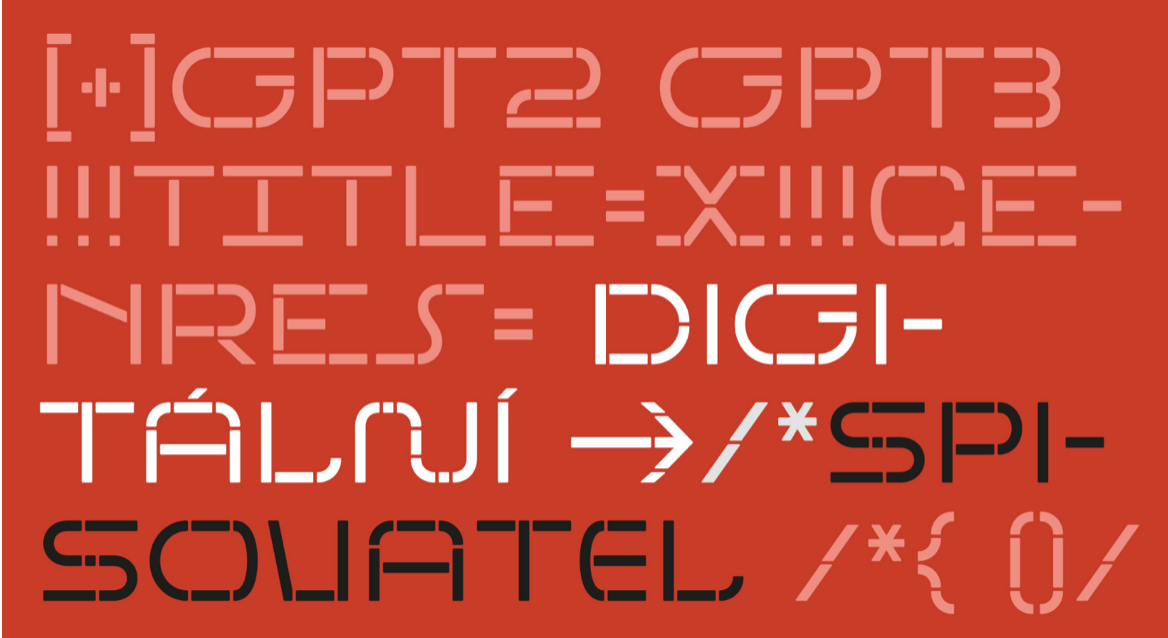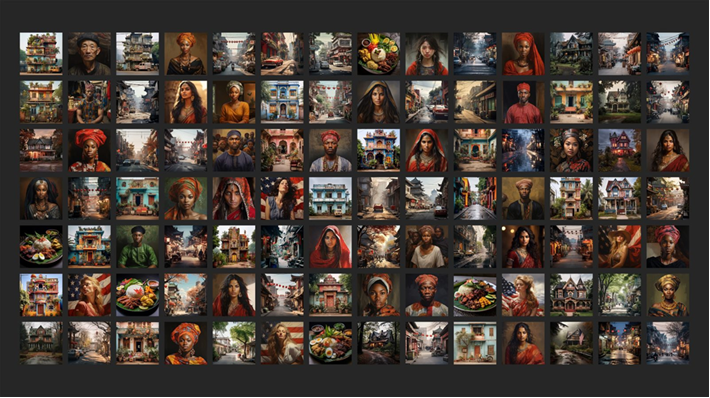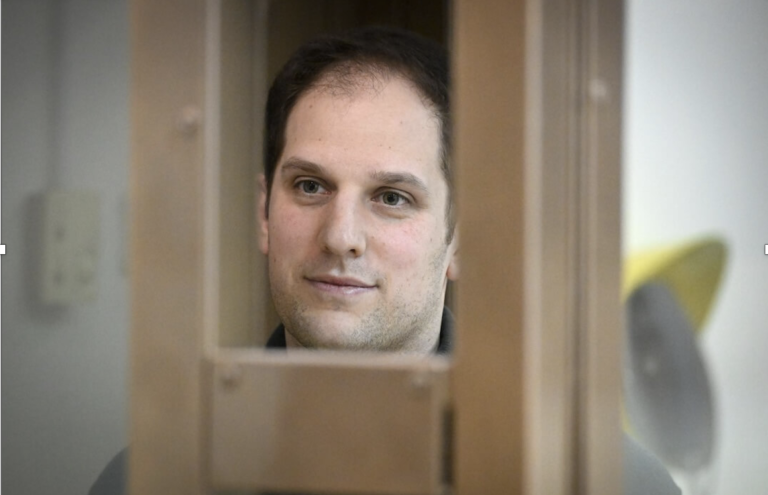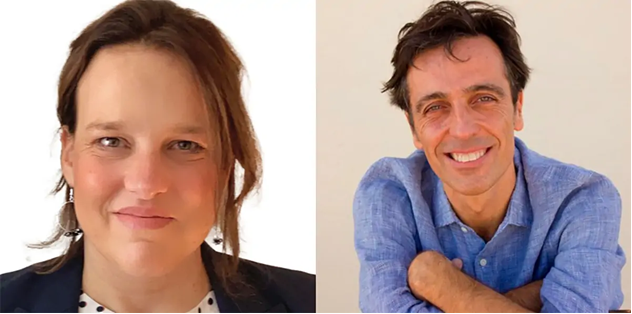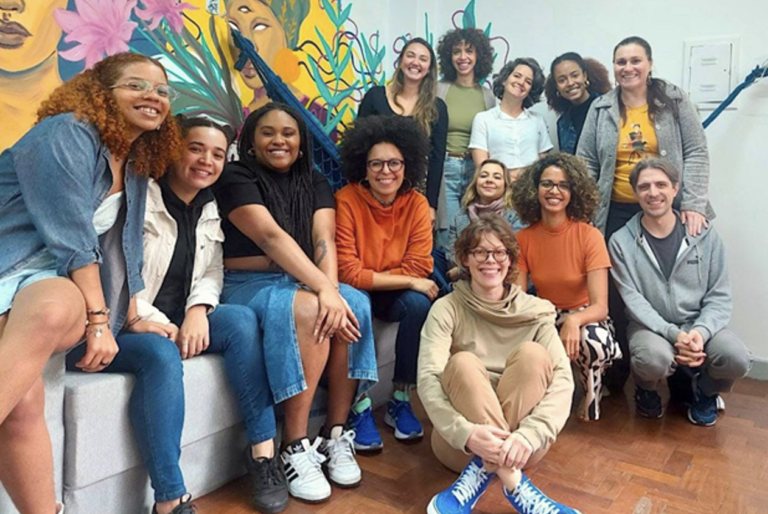When AI meets creative writing: an audio experiment at Czech Radio.
Source: Reuters Institute
In 2020, Anna Vošalíková created a program to explore how artificial intelligence might influence fiction writing. Four seasons later, the experiment is more relevant than ever.
By Gretel Khan
The banner for season 1 of the Digital Writer project.
This article is part of a five-part series on AI and the future of audio. The full series, which includes articles and short podcast episodes, can be found at this link. este enlace.
Can an AI write better short stories than a human writer? What if a human writer got in touch with an AI tool so they could write a short story together? Would it be a good idea? These are the questions at the heart of Czech Radio's Digital Writer project. de la Radio Checa.
Since 2020, the Czech public broadcaster has been experimenting with generative AI tools, in particular ChatGPT, to see what the interplay between artificial intelligence and human creativity would sound like. The result has been four seasons of its ongoing podcast series called Digital Writer.
To learn more about the project, I spoke with Anna Vošalíková , the chief dramaturge in charge of digital content at Czech Radio. We've edited our conversation for brevity and clarity.
Anna Vošalíková, dramaturga jefa de contenidos digitales de Radio Checa
Q. How would you describe Digital Writer?
A. Digital Writer is a project that aims to showcase the creative use of AI. It currently consists of three seasons. When this article comes out, it will have four seasons in total. Each season shows the use of AI in a very different way. In the first season, we generally use large language models GPT 2 and 3. In the second season, we have devised a kind of collaborative model between real human writers and AI to create short stories. The third season uses GPT 4 and the fourth season is going to be a completely different creative format. So there's a lot going on. But overall, it's basically a series of short stories written for Czech radio by AI.
P. You started this in 2020, long before the generative AI boom began. How did the project come about in the first place?
R. In 2019, we launched a platform called mujRozhlas, mujRozhlas, which is basically our miniature version of Spotify for Czech radio content [somewhat similar to BBC Sounds]. And within that platform, we used artificial intelligence in various ways. A year later, we came across a project called Digital Philosopher and we were very curious about what AI could do for our listeners in terms of creativity. We wanted to see what could be done in the creative space.
P. In 2020, you guys used a version of ChatGPT that is very different from the version that is currently available to the public. In terms of the technology you use and have used, how has the project evolved from 2020 to now?
R. It has evolved tremendously. I'm very proud of the process that we can show in the project. The first season was done through a fairly rudimentary API access to GPT 2 and GPT 3, which was made available primarily to academia.
If you look at the different seasons and how they use artificial intelligence, and they all use GPT primarily, you can really see the development of the language model and you can see from the early days, when the stories were very simple, to now.
Not only has AI changed, but the way we use it has changed quite a bit. From a very simple use of giving a signal and getting a result to a very intense co-creation process with the language model, the changes have been monumental. We were toying with the idea of doing some sort of comparisons last season, but we actually decided that we were going to use only GPT 4 because we felt that the textual results we were getting were by far the best. The changes are phenomenal. We are really enjoying the processes that go along with the changes.
P. One of the things you mentioned is that, from season one to season two, you leaned toward a more collaborative model between the AI technology and the scriptwriters. I was wondering, what kind of reaction did the screenwriters have when you presented this project to them?
R. If we wanted to continue with the project, it was absolutely critical for us to bring something relatively new each season. We didn't want everything to be the same. So when the first season was such a success, we decided to go for something that would be a little easier for our listeners and really push the boundaries of how AI can be used in a more collaborative sense.
The authors we contacted were a very good mix of people interested in collaborating with artificial intelligence, but also authors who were very skeptical of the technology. We wanted the results of the second season to be very representative of how different people approach this creative process.
Part of the second season was interviews with the authors so that they could talk about their experience working with AI. Some really liked it and I think it's fair to say that others really didn't like it. I think that was by far the most valuable season because it really showed what could be done, how and at what cost.
We had an author who is very fond of science fiction and he really enjoyed it because he felt it was very conducive to his creative processes. We had an author who writes children's books and fairy tales and she thought it was fun and quirky. She didn't really feel she contributed too much, but she enjoyed the collaboration. Then we had one author who just thought it was a gimmick, didn't enjoy it, didn't see any value in it at all.
It's very important to make the message very clear that this is a technology that is intended for people who want to use it and it's not a technology that should be imposed on anybody.
P. You've been working on this project for more than four years. How do you think AI tools can be implemented in the creative process without stifling creativity?
R. To ensure that creativity is not stifled, it is absolutely critical that the people involved in the creative process want the AI to participate. If they want the AI to participate, there is virtually no way to stifle the creative process. If they don't want it to participate and feel that it's a technology that is imposed on them or something they are forced to work with, then the process is not going to be good and the results are not going to be good.
In my opinion, if you want to work with AI creatively, don't hesitate, because there is very little to lose. You can brainstorm, you can use it simply as a gauge of ideas you want to work on, it can help you with creative blocks: there are a variety of things that can help you. But, I repeat, if you feel like it's something that's taking you away from your creative process in some way, it's not going to be a useful tool.
P. This technology has been refined and modified very quickly since you launched it. How do you foresee these collaborations continuing or improving in the future?
R. That's something we think about constantly. When we're trying to decide if we're going to do another season of Digital Writer, we realize that the only reason we would continue with the project is if the technology was so transformative to the creative process that it brought something new to the listener.
This article is the first installment in a series on AI and the future of audio. You can find the full series here.
As a public service news organization, we have a huge responsibility to our listeners and must ensure that everything we offer is enriching. It's not supposed to be superfluous content, it's not supposed to be content just for content's sake. So if the technology continues to develop, if the results we get are constantly improving, then we can continue with the project.
P. The project has been a great success, what has been the public reaction so far?
R. Well, that's been very interesting. The first season received very mixed reviews. There were people who didn't even listen to the stories and were immediately apprehensive because there was AI involved and they were very afraid that the screenwriters would lose their jobs because the AI was going to replace them, which I think we're proving over and over again that we're not there yet.
But there were also those who told us that the stories were very simple, but that they were fine, that they were fun to listen to and that they had enjoyed the experience. Then there were those who listened to them and thought they were absolute garbage. All of those opinions are completely valid.
The great thing about this project is that the main goal is not necessarily to produce the best audio short stories we can. We have human writers who write fantastic pieces and who, in terms of quality, are far superior to what we do at Digital Writer. However, it is also important to understand that one of the values of the project lies in the technology that is being used and the technology that is being shown.
In the second season, the reception was much better, because there were people involved. So the project had a human face, where popular writers who collaborated with Czech Radio on other projects could talk about it, could talk about their experiences, and it was a little bit easier to digest. In the third season, the reception was mixed again, because we also included some fake podcast episodes, which stirred up some controversy, as well as fictional radio reports done by some of the more illustrious radio news personalities that we have. I think this is one of the few projects at Czech Radio that thrives on negative reception, because that's something that can drive us to innovation.
